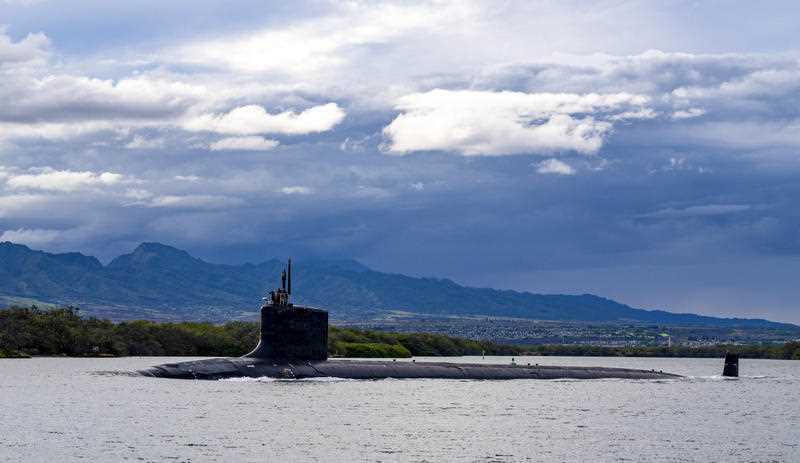Australia’s first batch of nuclear-powered submarines could arrive earlier via the United States, as Anthony Albanese reaffirms the country’s commitment to the AUKUS treaty.
The prime minister marked the one year anniversary of the treaty between Australia, the US and the United Kingdom, saying it has made significant progress towards acquiring conventionally armed, nuclear-powered submarines.
“We are steadfast in our commitment to Australia acquiring this capability at the earliest possible date,” he said in a statement on Saturday.
It comes as the Wall Street Journal reports Australia’s first batch of nuclear submarines could arrive sooner.
The US government is considering expediting Australia’s submarines to respond to China’s growing influence in the Pacific, the newspaper reported.
An initial fleet could arrive in the mid-2030s while Australia builds its own capability to produce the subs.
Mr Albanese said the need for the treaty is “as clear today as it was a year ago”.
“We stand together to support an international order that respects human rights, the rule of law, and the peaceful resolution of disputes free from coercion,” he said.
If the submarines do arrive earlier than originally thought they will still be carrying conventional weapons, with Mr Albanese reaffirming Australia does not seek and will not acquire nuclear weapons.
The AUKUS treaty has also improved Australia’s progress on hypersonic and counter-hypersonic missile technology, electronic and cyber warfare capabilities, artificial intelligence and quantum computing, Mr Albanese said.
He said AUKUS will seek opportunities to engage with allies and close partners as the work progresses.
The security pact was signed in the lead-up to scrapping Australia’s $90 billion French submarine deal.
Those submarines were also slated to enter service in the mid-2030s.
By Jack Gramenz in Sydney
Get the latest news, sport, entertainment, lifestyle, competitions and more delivered straight to your inbox with the Canberra Daily Daily Newsletter. Sign up here.



